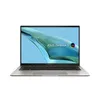Windows is losing these 7 features in 2024 — here's what will change for you
Some of these are quite disappointing
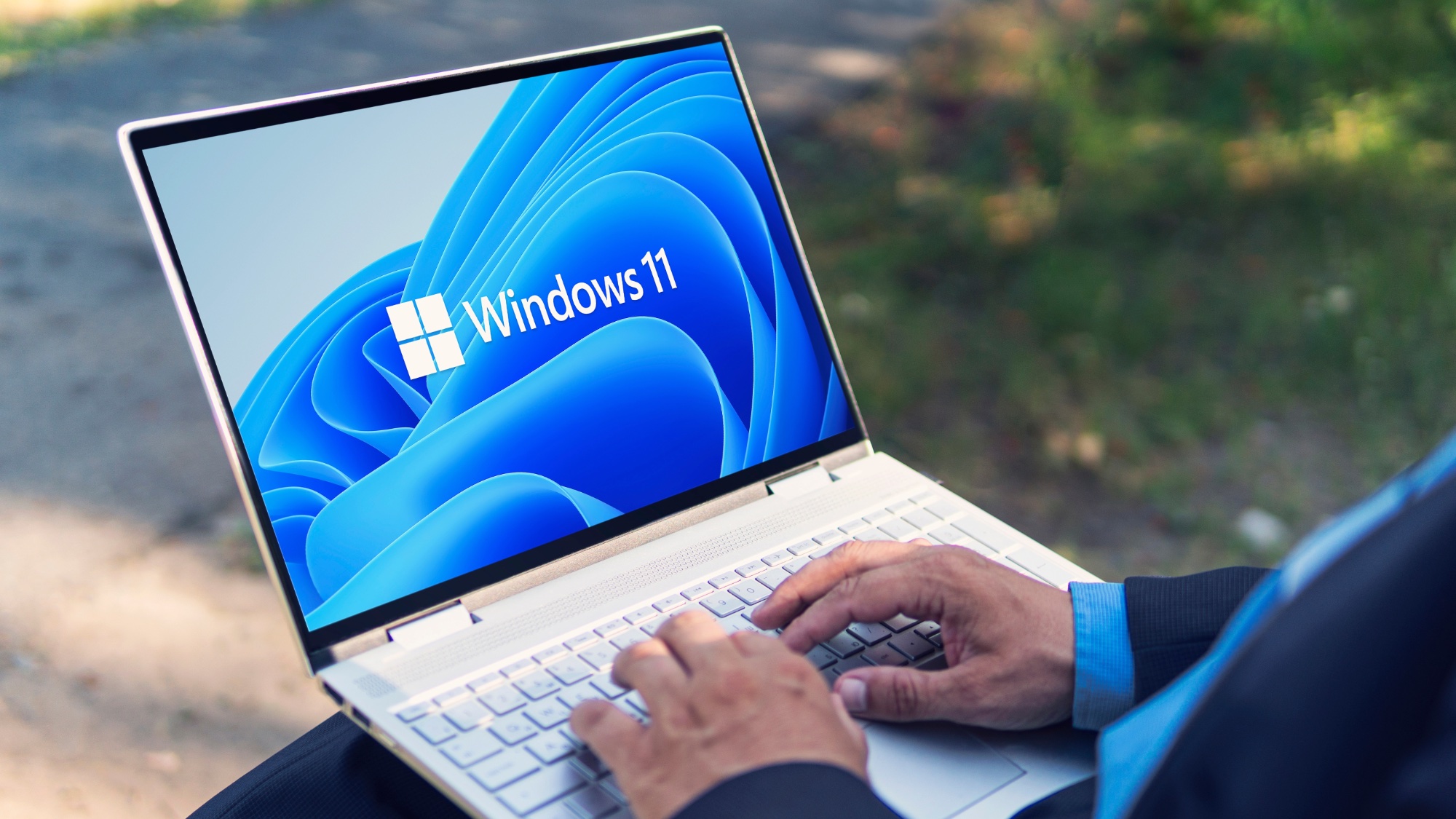
Here at Tom’s Guide our expert editors are committed to bringing you the best news, reviews and guides to help you stay informed and ahead of the curve!
You are now subscribed
Your newsletter sign-up was successful
Want to add more newsletters?

Daily (Mon-Sun)
Tom's Guide Daily
Sign up to get the latest updates on all of your favorite content! From cutting-edge tech news and the hottest streaming buzz to unbeatable deals on the best products and in-depth reviews, we’ve got you covered.

Weekly on Thursday
Tom's AI Guide
Be AI savvy with your weekly newsletter summing up all the biggest AI news you need to know. Plus, analysis from our AI editor and tips on how to use the latest AI tools!

Weekly on Friday
Tom's iGuide
Unlock the vast world of Apple news straight to your inbox. With coverage on everything from exciting product launches to essential software updates, this is your go-to source for the latest updates on all the best Apple content.

Weekly on Monday
Tom's Streaming Guide
Our weekly newsletter is expertly crafted to immerse you in the world of streaming. Stay updated on the latest releases and our top recommendations across your favorite streaming platforms.
Join the club
Get full access to premium articles, exclusive features and a growing list of member rewards.
Microsoft is always working to improve Windows 11. Whether it's digging in and fixing bugs or adding new apps and features, the company has definitely improved its flagship operating system significantly since launch.
Sometimes, though, the company takes things away from Windows users. While I'm sure Microsoft has the best intentions in mind, it always feels bad when something we're used to having is stripped away.
Today, we're going to look at 7 features and other aspects of Windows that will disappear in 2024. If you use any of these on a regular basis, you'd better start adjusting your workflow, because before you know it they'll be gone.
Goodbye WordPad
Microsoft has long included a barebones word processor with Windows, but those days are coming to an end, as the company intends to remove the program from the OS entirely. I can't say I'm surprised — is anyone out there actually using WordPad when there are tons of feature-packed free word processors available?
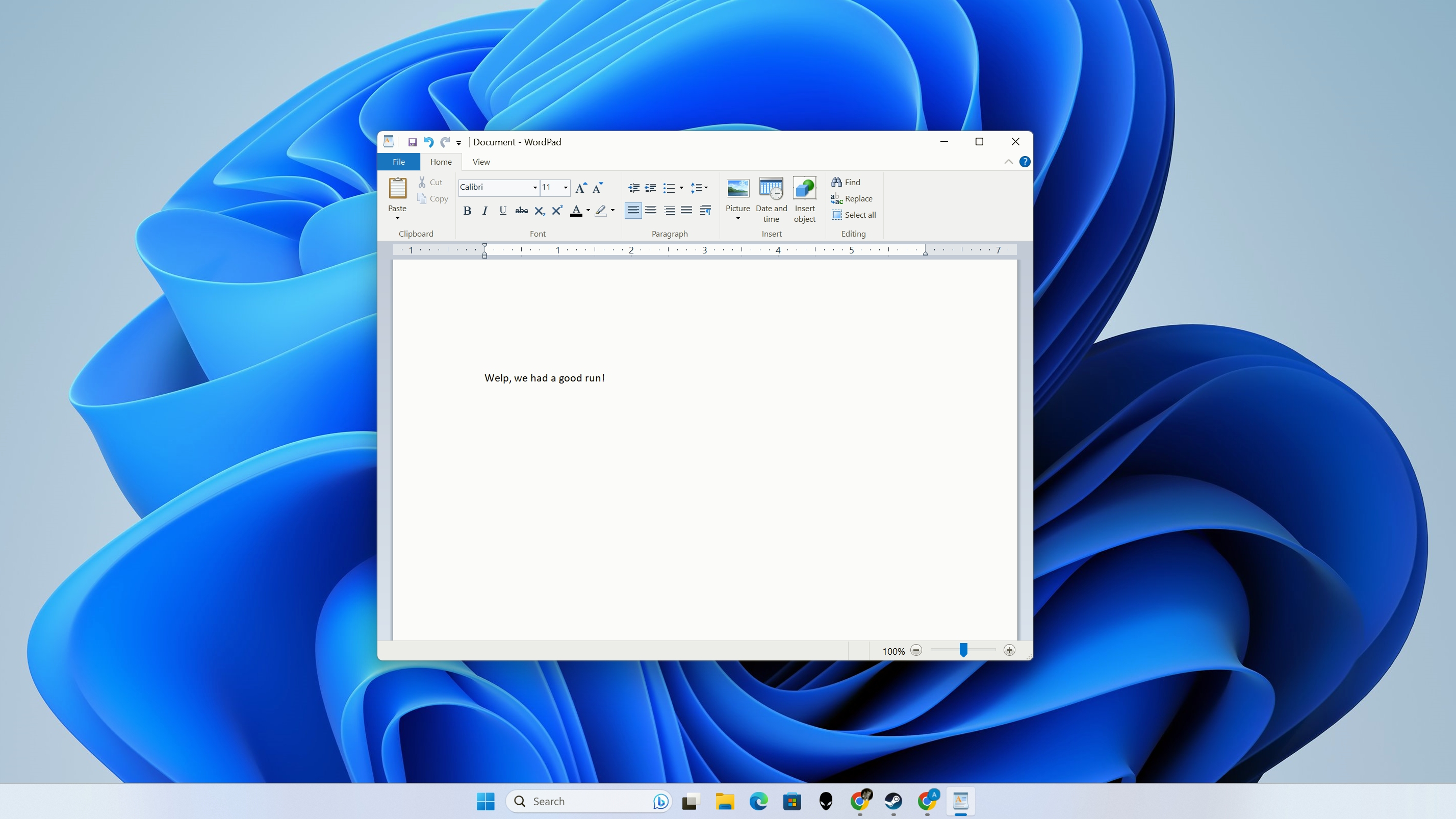
In the end, WordPad hasn't been officially updated by Microsoft for a while, so it's not too surprising that the company plans to remove it by Windows 11 version 24H2 later in 2024.
If you are one of the few who still uses it, a free browser-based option like Microsoft Word or Google Docs might be a great option. You can also download tools like LibreOffice or OpenOffice to do the same job as WordPad, but with far more features and options.
No more problem logging
Windows has a lesser-known feature designed to help you create step-based screenshots to be used in documentation, or to show errors so that a support employee can see exactly what's happening and help you fix it.
Get instant access to breaking news, the hottest reviews, great deals and helpful tips.
Sadly, at least for people who even knew the handy problem logging feature existed, Microsoft is planning to remove it from Windows, though we don't know exactly when. It's definitely time to seek a replacement, which can be as simple as using the Windows snipping tool to gather screenshots manually. It's a little less streamlined, but it'll do the job for the times when you need it.
It was nice knowing you, Cortana
Cortana, named after Master Chief's AI companion in the Halo video games, is being replaced by Microsoft Copilot. Thankfully, the majority of Cortana's usefulness will still be available in the new AI-based app (along with plenty of new goodies).
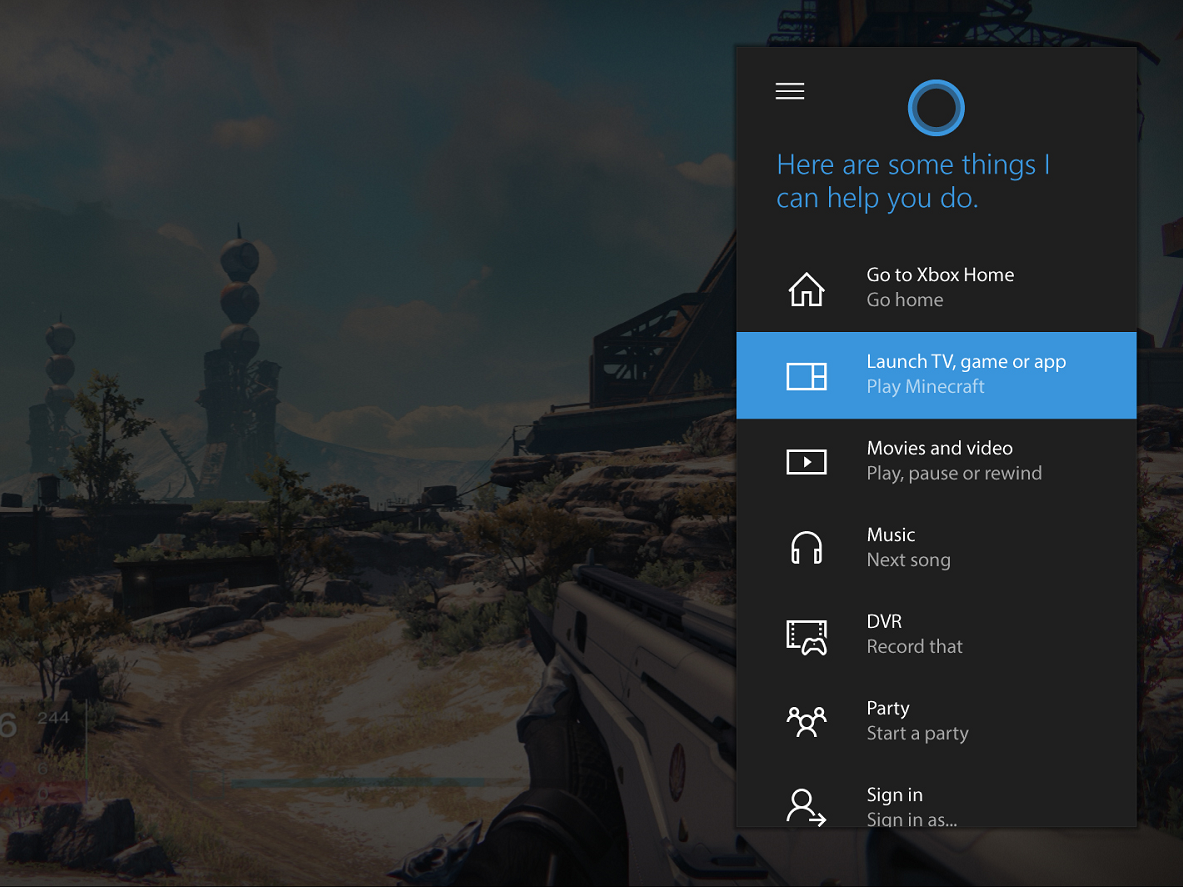
Still, if you rely on Cortana for any specific workflows, you'll need to adapt and get used to Copilot, as the Cortana app will soon be removed from Windows. Making the shift shouldn't be too much of a challenge, but it's definitely something worth preparing for so you can streamline any transitions.
Windows Mail and Outlook Express are being replaced
Similar to Cortana, this is just a case of Microsoft streamlining its apps to put all of the features in one place. Instead of having Windows Mail, Outlook Express and Outlook, Microsoft will simply put everything in Outlook.
However, there are some drawbacks to the shift. When using Outlook, all mail is routed through Microsoft servers regardless of which provider you use. While Microsoft has plenty of security and safeguards on its servers, it's just another place mail has to go and another potential place where a hole could be found.
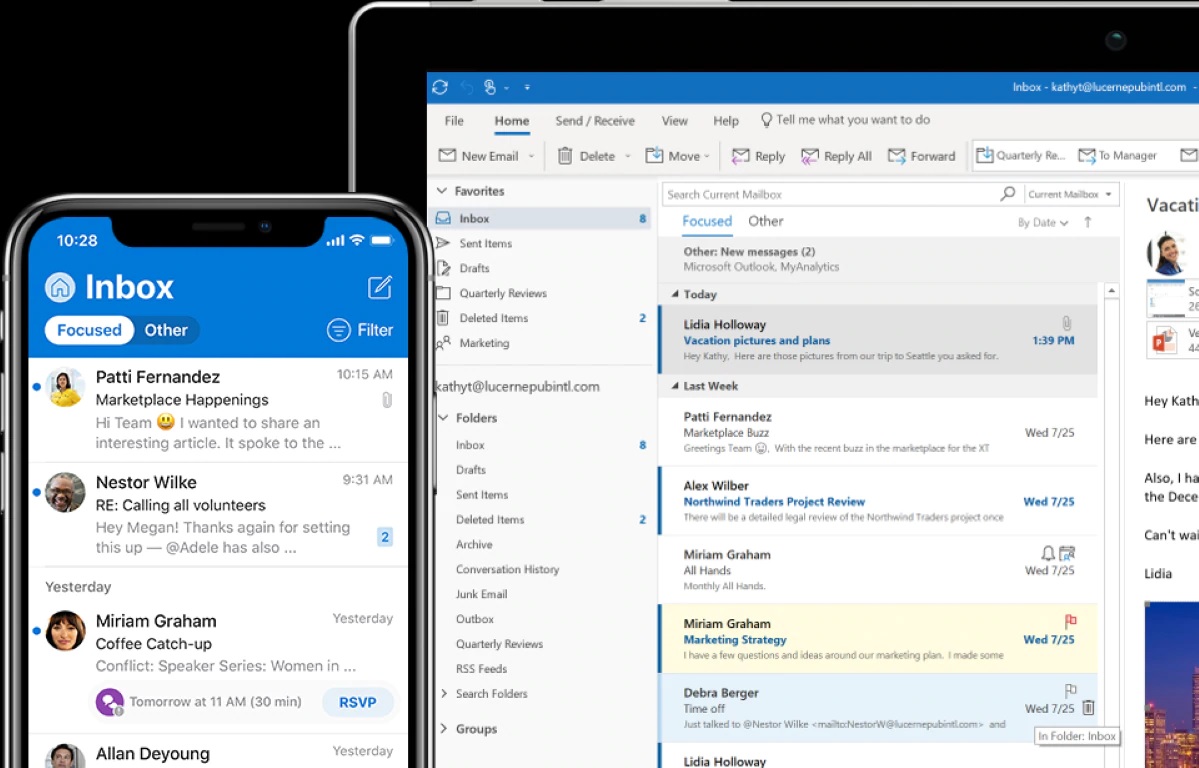
If you're a Windows Mail or Outlook Express user, you might want to give Mozilla Thunderbird a try to see if it suits your needs. It has plenty of useful features, and your mail isn't routed through any extra servers when you use it.
Windows-to-Go... is going
Windows-to-Go is another niche feature that is useful for some people. With it, you could copy your entire Windows installation to an external hard drive and run it on different computers.
Unfortunately, Microsoft has already discontinued support for this feature, and it's on the chopping block to be removed entirely from Windows in the near future.
There are other ways to install Windows on an external drive, but it's not as streamlined as Windows-to-Go once was. For example, you can use VMWare to do the job, but it'll be a separate Windows installation, not a copy of your existing one. Still, it's an option if you really need this feature after Microsoft removes it.
HomeGroup, we hardly knew ye
HomeGroup is an easy way for Windows users to share files, folders, printers, and other aspects of their computers between PCs on their home network. Sadly, though, Microsoft is killing it off soon.
Fortunately, Microsoft said that any existing shares that have already been created using HomeGroup will stick around, but you will be unable to create new ones. Instead, users will need to share with others on their network through workgroups and Active Directory domains, which are a little less convenient but still capable of doing the job.
RIP WebDAV
Microsoft is removing WebDAV from Windows. This probably only matters to a few users, but it's still worth noting, as it goes hand-in-hand with the removal of the WebClient. Anyone using the protocol to connect network drives with WebDAV must find another solution.
An everyday use for WebDAV was integrating cloud storage directly as a drive in Windows. Now, Microsoft intends to not start the service at bootup, which means removing it isn't far behind. In fact, it could even disappear by the time we see the next major Windows update (codenamed Windows 11 24H2) released later this year.
So if any of these tools look familiar to you, now's the time to figure out how you'll live without them—because soon you'll have to!
More from Tom's Guide
- TCL just announced a new 98-inch QD Mini-LED TV with an eye-searing 3,500 nits of brightness
- StabilityAI drops Stable Audio 2.0 — here’s everything that’s new
- Google Pixel 8a rumored release date, price and specs

Dave LeClair is the Senior News Editor for Tom's Guide, keeping his finger on the pulse of all things technology. He loves taking the complicated happenings in the tech world and explaining why they matter. Whether Apple is announcing the next big thing in the mobile space or a small startup advancing generative AI, Dave will apply his experience to help you figure out what's happening and why it's relevant to your life.
 Club Benefits
Club Benefits



















